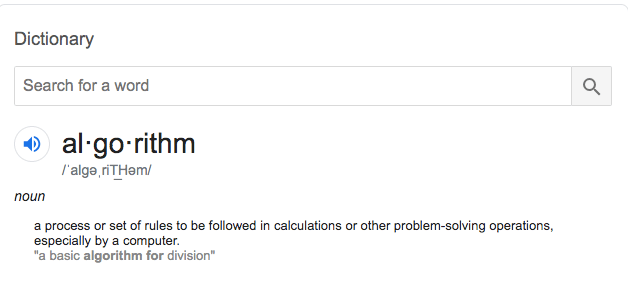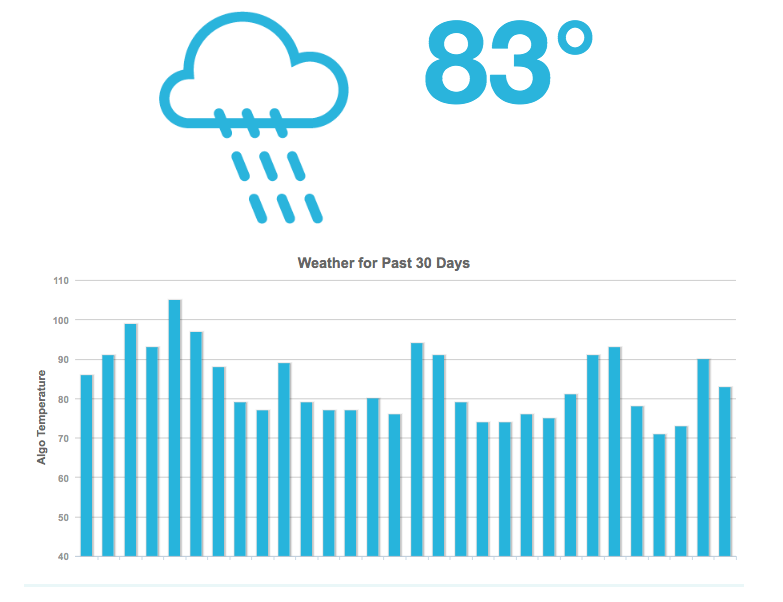
New to the world of search engine optimization?
There's a lot to learn when it comes to SEO. One of the first things you may have found yourself asking is, "what is a search algorithm?"
The truth is, even the most experienced SEO experts are still constantly asking questions about search algorithms and their ever-changing rules.
To help you get started, let's break down the definition of search algorithms.
Looking for more hands-on support with your SEO initiatives? At Profitworks, we are a team of marketing specialists dedicated to helping small businesses become the market leader online. To find out if Profitworks might be a good fit for your business, contact us today!
What is a Search Algorithm?
Defined by Google, an algorithm is, "a process or set of rules to be followed in calculations or other problem-solving operations, especially by a computer."

More specifically, a search engine algorithm is a unique formula that is used to determine the ability of a web page in answering the question or query a user is searching for. Using a number of factors, or rules, algorithms rank pages based on their overall quality and use this evaluation to determine which pages are worth showing to users and which are considered spam.
Many platforms keep the search engine rules that are used to determine rankings hidden from the public, especially Google. There are two primary reasons for this: first, if a proprietary algorithm was made public, competitors could easily replicate the platform. Second, hiding certain factors that are considered by algorithms limits the number of people who are able to find loopholes in rankings, utilizing black hat SEO techniques instead of simply creating great content.
Although certain elements of Google's algorithm are a secret, not everything is a mystery. In fact, Google has even released articles about the different elements that are considered in determining a page's ranking. Some of the most important ranking factors we've identified include the following, listed in order of importance:
- Content quality
- Number of total backlinks
- Click-through-rate
- Relevant terms in the content of the page
- Number of social media shares
- Domain search visibility
- Number of referring domains
- Content freshness
- Length of the URL
What is the difference between a search engine and a search algorithm?
A search algorithm is the process or system used to determine search results in a search engine. It is the computer code that makes the search engine work.
A search engine is a service, accessible over the Web, that finds information on the Web in response to your queries.
The most common search engines are
1. https://www.google.com/
7. https://search.brave.com/ (Private Search Engine)
For more information on what to look for when optimizing your content, download our free SEO checklist below!
Who Determines the Algorithms?
Believe it or not, search engines didn't get their start with Google.
In fact, the first search engine ever created was made by Archie Query Forum in 1990, beginning with a simple index of downloadable files. It wasn't until 1993 that page contents, including titles, headers and URL's were factored into the ranking system.
What we know today as "Google" first came onto the scene in 1996 as "BackRub", an engine which utilized backlinks in order to rank pages through search. Using what is called 'citation notion', BackRub would count any mention of a website on another site as a vote of confidence for that page, ranking it high in SERPs. Since the launch of BackRub, countless search engines have been launched with their own proprietary algorithms designed by the companies that release them.
From Ask Jeeves, to MSN, to Yahoo, to AOL, many search engines exist, each with different ranking factors to consider when creating content.
However, despite the competition, the reality is that Google has successfully risen to the top of search engine dominance over the years. In 2013, the company released "Hummingbird", the first algorithm with the ability to identify user intent behind searches rather than just the phrase used in the search itself. Over the years that followed, Google has continued to release modifications to their algorithm with one focus in mind: making the experience for their users as helpful as possible.
Google's commitment to innovation has set the standard and direction for all competing search engines. It continues to hold the position of the world's most popular search engine, with 3.5 billion searches conducted per day.
How Can You Stay on Top of Search Algorithms?
If there's anything we can learn from the history of search, it's that the future is uncertain. What determines Google SERP's today won't be the same tomorrow, so it's important to stay on top of the changes and that your website content stays fresh.
Luckily, there are also a number of resources that can help you determine what changes are taking place in the world of SEO and act on the changes more quickly.
The Search Engine journal is an incredible resource for SEO and has dedicated a page of their website entirely to documenting algorithm changes over time. From roll-out dates to the overview of the change itself, this blog is sure to help you stay on track when it comes to algorithm updates.
Similarly, Google's Webmaster blog is a great way to hear about current or upcoming SEO changes straight from Google themselves. Although the details shared may be less in-depth, it's still recommended that you keep an eye on what's released from this platform.

There are also tools that make tracking with algorithm changes easier. SEMRush Sensor is a platform that monitors the volatility of search engines and the changes of page rankings over time, helping users determine when and if changes are being made. MozCast is another tool that monitors volatility by watching how algorithms change over 24 hours for 30 day periods, assigning a "temperature" as a result. When things are sunny and bright, no changes are being made, whereas thunderstorms and clouds indicate that the algorithm is pretty volatile!
On The Watch
Now that you know what search algorithms are, the idea of staying on top of the changes may seem intimidating.
We get it!
That's why we support business owners in growing their online presence by staying ahead of SEO changes on their behalf. At Profitworks, we are a team of SEO specialists focused on results. Let us handle your search engine optimization and grow your online revenue while you focus on what you do best! Contact us today to learn more about how our team can help.

